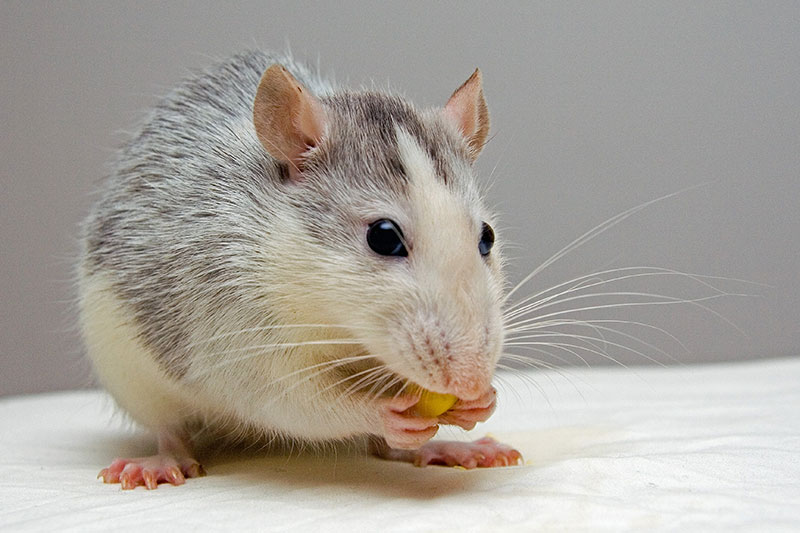Uninvited Guests: Should You Be Concerned About Mouse Droppings in Your Home?

Mouse droppings may seem like a minor inconvenience, but they can be indicative of a larger problem. These tiny pellets left behind by rodents may go unnoticed for a while, but ignoring them could lead to serious consequences for your home and health.
In this blog post, we’ll explore why you should be concerned about mouse droppings and what steps you can take to address this issue effectively.
Health Risks:
Mouse droppings can pose significant health risks to you and your family. One of the primary concerns is the transmission of diseases from Mice. Mice are known carriers of various pathogens, including bacteria and viruses that can be harmful to humans. Hantavirus, salmonella, and leptospirosis are just a few examples of the diseases that can be transmitted through contact with mouse droppings.
Inhaling airborne particles from dried mouse droppings can also lead to respiratory issues. The dust created by disturbed droppings can contain allergens and harmful bacteria, which, when inhaled, may cause respiratory problems such as asthma or allergic reactions.
Structural Damage:
Aside from health concerns, mouse infestations can also result in structural damage to your home. Mice have a constant need to gnaw on objects to keep their teeth from growing too long. This means that your wooden furniture, electrical wires, and even insulation could become targets for these rodents. If left unaddressed, this behavior can lead to costly repairs and compromise the safety and integrity of your home.
Multiplication and Infestation:
Mice are prolific breeders, with a single pair capable of producing dozens of offspring in a short period. What might start as a few droppings could quickly escalate into a full-blown infestation if not dealt with promptly. Mice reproduce rapidly, and the longer you wait to address the issue, the more challenging it becomes to eradicate the infestation.
Contamination of Food and Surfaces:
Mouse droppings, urine, and hair can contaminate your food and kitchen surfaces, leading to a range of hygiene issues. The mere presence of mice in your home increases the risk of foodborne illnesses. They can access your pantry, gnaw through packaging, and leave behind traces of their presence that are not always visible to the naked eye. Regularly inspecting your food storage areas and cleaning surfaces is crucial to prevent contamination.
Allergens and Asthma Triggers:
For individuals with allergies or asthma, the presence of mouse droppings can exacerbate their condition. The proteins found in mouse urine, saliva, and feces can trigger allergic reactions, causing symptoms such as sneezing, itching, and respiratory distress. If you or a family member already has respiratory issues, it’s especially important to address mouse infestations promptly to minimize the risk of worsening health conditions.
Steps to Take:
1. Identify and Seal Entry Points:
Conduct a thorough inspection of your home to identify potential entry points for mice. Seal any cracks, gaps, or holes in walls, floors, and foundations. Mice can squeeze through surprisingly small openings, so be meticulous in your examination.
2. Maintain Cleanliness:
Keep your home clean and tidy to minimize the attractions for mice. Regularly clean food crumbs, spills, and dispose of trash promptly. Store food in airtight containers to prevent easy access for rodents.
3. Set Traps:
Utilize mouse traps strategically in areas where you’ve observed droppings. Choose traps that are appropriate for the severity of the infestation. Check and reset traps regularly until you’re confident the problem is resolved.
4. Consider Professional Help:
If the infestation persists or seems severe, it may be time to consult with a pest control professional. A mouse exterminator in Toronto will have the expertise and tools to address the issue effectively, ensuring a thorough and lasting solution.
5. Sanitize Affected Areas:
Wear protective gear such as gloves and a mask when cleaning areas with mouse droppings. Use disinfectant solutions to sanitize surfaces, and avoid sweeping or vacuuming as it can release particles into the air. Instead, dampen the area to minimize the risk of airborne contaminants.
While mouse droppings may initially seem like a minor nuisance, it’s essential to recognize the potential risks they pose. From health concerns to structural damage and the rapid multiplication of these rodents, addressing mouse infestations promptly is crucial. By taking proactive measures such as sealing entry points, maintaining cleanliness, and, if necessary, seeking professional assistance, you can protect your home and the well-being of your family. Don’t underestimate the significance of those small pellets – they may be a warning sign of a larger issue that requires immediate attention.





You must be logged in to post a comment.